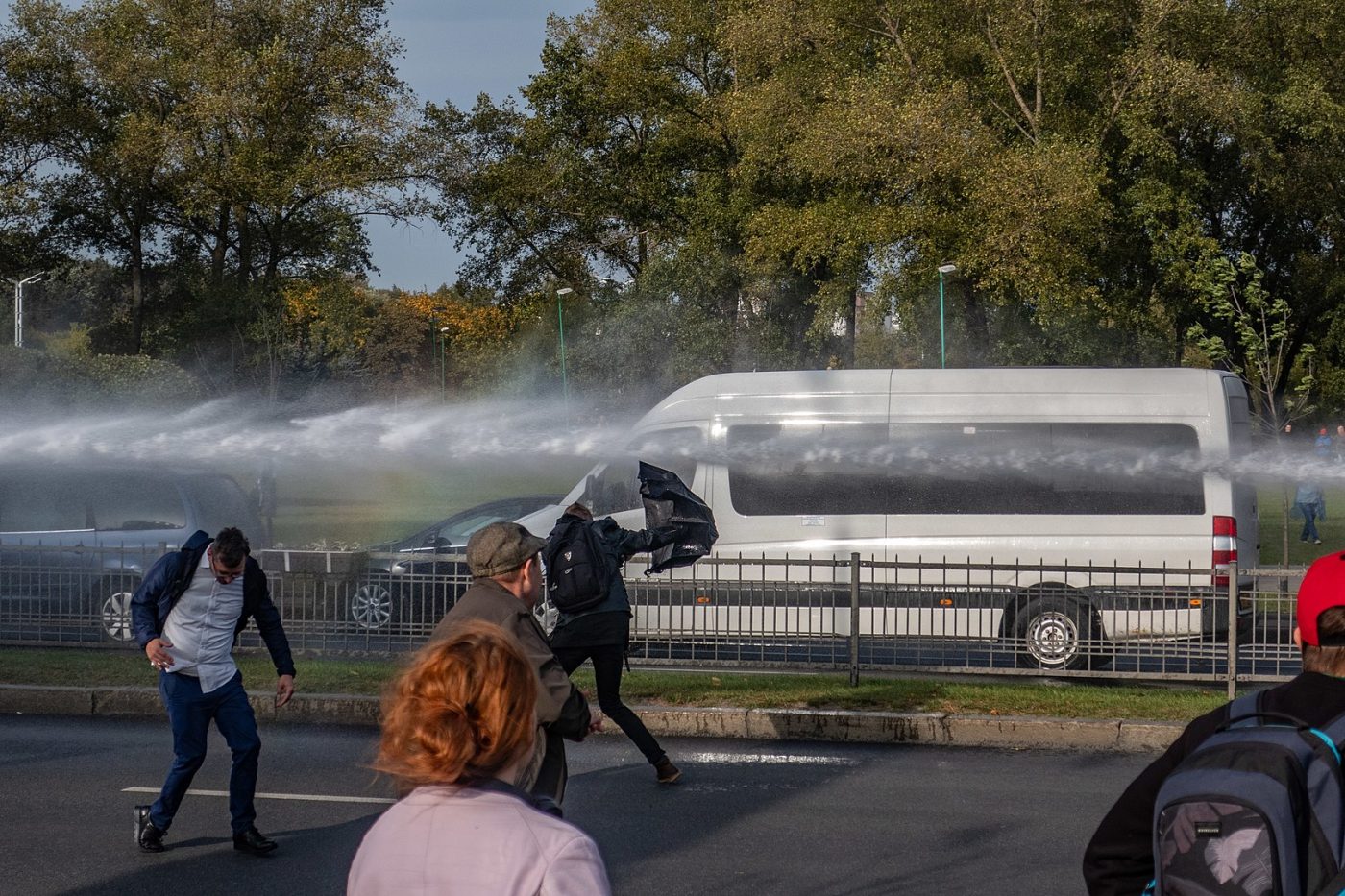On October 2, the European Union (EU) imposed sanctions on 40 Belarusian officials identified as responsible for “repression and intimidation against peaceful demonstrators, opposition members, and journalists in the wake of the 2020 presidential election in Belarus, as well as for misconduct of the electoral process.” The restrictive measures include a visa ban and an asset freeze.
The US followed, sanctioning six Interior Ministry and two Central Election Commission (CEC) officials with a property block. The UK and Canada had introduced their lists even before the EU and included Aliaksandr Lukashenka, Belarus’ long-time authoritarian ruler, and his son Viktar, the National Security Advisor to his father. In addition, Belarus’ neighboring Baltic states have issued entry-ban sanctions on 128 officials.
The European list includes top officials in the Ministry of Interior as well as the members of the CEC. But it omits Lukashenka, who bears the most responsibility for the rights violations. The West can do better.
The Lukashenka regime has continued its repressions, undeterred. Over 15,000 people have been arrested and 350 criminal cases have been opened against protesters and civic activists. Police brutality has escalated. In Minsk only, over 1,300 people were beaten by the police, with every third person suffering serious injuries. At the October 12 Elderly March, the police used tear gas and fired in the air. Deputy Interior Minister Henadz Kazakievich has threatened the use of live ammunition against peaceful protesters during future demonstrators.
Perhaps emboldened at the limited nature of the measures put in place thus far, the Belarusian authorities have announced retaliatory sanctions against unidentified European officials and demanded that Lithuania and Poland significantly reduce the size of their embassy staff in Minsk. In solidarity, the EU countries present in Minsk recalled their ambassadors, leaving Belarus with only two European ambassadors present. The staff cuts at the embassies have affected the issuance of visas to Belarusians — the Lithuanian Embassy and visa centers have temporarily stopped the application process, whereas the Polish consulate in Hrodna in western Belarus has suspended all its operations.
These most recent Western sanctions are the weakest since sanctions were first imposed on Belarus’ leaders in 1996. By 2012, the restrictions had gotten quite comprehensive, targeting over 240 individuals and 32 companies linked to the businessmen closely connected with the president. The EU only lifted sanctions in 2016, following the release of all political prisoners by Lukashenka, who was at the time cynically pivoting to the West following the Russian invasion of Crimea in 2014.
It seems unlikely that the West would re-impose such broad economic sanctions on the Belarusian regime, due in part to legitimate concerns that they would harm the people of Belarus by wrecking the economy, without any guarantee that the regime would modify its behavior. Targeted sanctions aimed at regime-connected business elites might work better, but here, too, there are obstacles. For one, these businessmen have effective lobbyists in Western countries. In 2012, Slovenia and Latvia were reportedly hesitant to sanction Belarusian oligarchs because of the latter’s investments in their countries. Finally, the Belarusian authorities have also played hardball in the past. In 2012, for example, they warned that they might delay the transit of EU exports through Belarus. Now the regime is threatening to divert its cargo from Baltic ports to Russia.
The West should not be cowed. The EU in particular should put in place comprehensive, Magnitsky-type sanctions on the violators of human and political rights in Belarus. The list needs to include not only top officials but also members of the election authorities at all levels, including at polling stations and regional commissions; the riot police and other Interior Ministry troops dispersing peaceful demonstrations; investigators from the KGB and the Investigative Committee, as well as prosecutors responsible for arbitrary arrests; and judges handing down politically-motivated sentences. Imposing sanctions on immediate family members may also be successful, as often the children of these individuals study or work abroad.
These measures alone may not bring Lukashenka to heel. But they would be more effective — and less counterproductive — than what is currently being tried.
Katia Glod is a Non-resident fellow with CEPA’s Democratic Resilience program.
Europe’s Edge is CEPA’s online journal covering critical topics on the foreign policy docket across Europe and North America. All opinions are those of the author and do not necessarily represent the position or views of the institutions they represent or the Center for European Policy Analysis.





